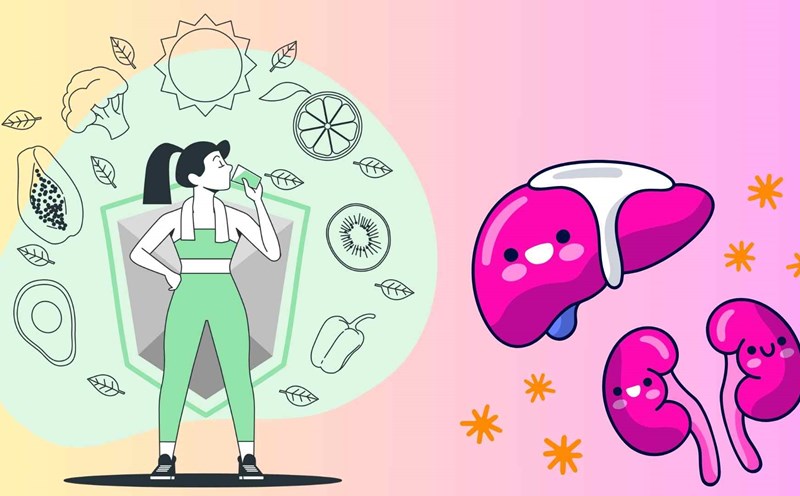Unrenting urine
Many people often try to urinate when busy, but this habit can cause urinary tract infections, urinary tract infections, bladder inflammation and seriously affect kidney function. Prolonged urination, combined with drinking less water, also increases the risk of kidney stones and stagnant kidneys.
Do not abuse drugs
Some medications can be harmful to the liver and kidneys. Therefore, it is necessary to absolutely avoid arbitrarily using drugs without a doctor's prescription.
No smoking
Smoking reduces blood flow to the kidneys, damages renal plaque tissue and leads to urinary protein. At the same time, cigarettes also aggravate kidney disease if the patient has high blood pressure.
Cigarette smoke contains many toxic substances, causing damage to liver cells, increasing the risk of cirrhosis, liver cancer and other liver diseases.
Don't eat too much
Eating too much causes the body to produce more uric acid, urine and substances that need to be excreted through the kidneys, thereby increasing the burden on the kidneys and affecting excretion function.
Control blood pressure and blood sugar
High blood pressure damages small blood vessels in the kidneys and can easily lead to kidney failure if not controlled. Similarly, maintaining stable blood sugar is also an important way to protect the kidneys.
Drink enough water
You should drink 1,500-2,000 ml of filtered water per day to help the kidneys excrete sodium, uric acid, nitrates and toxic substances. It should be noted that the water here is filtered water, not including soda, carbonated soft drinks, coffee or bottled juice.
Regular health check-ups
Many kidney and liver diseases do not have obvious symptoms in the early stages, but can be detected through tests. Regular check-ups are the best way to monitor and protect long-term liver and kidney health.










